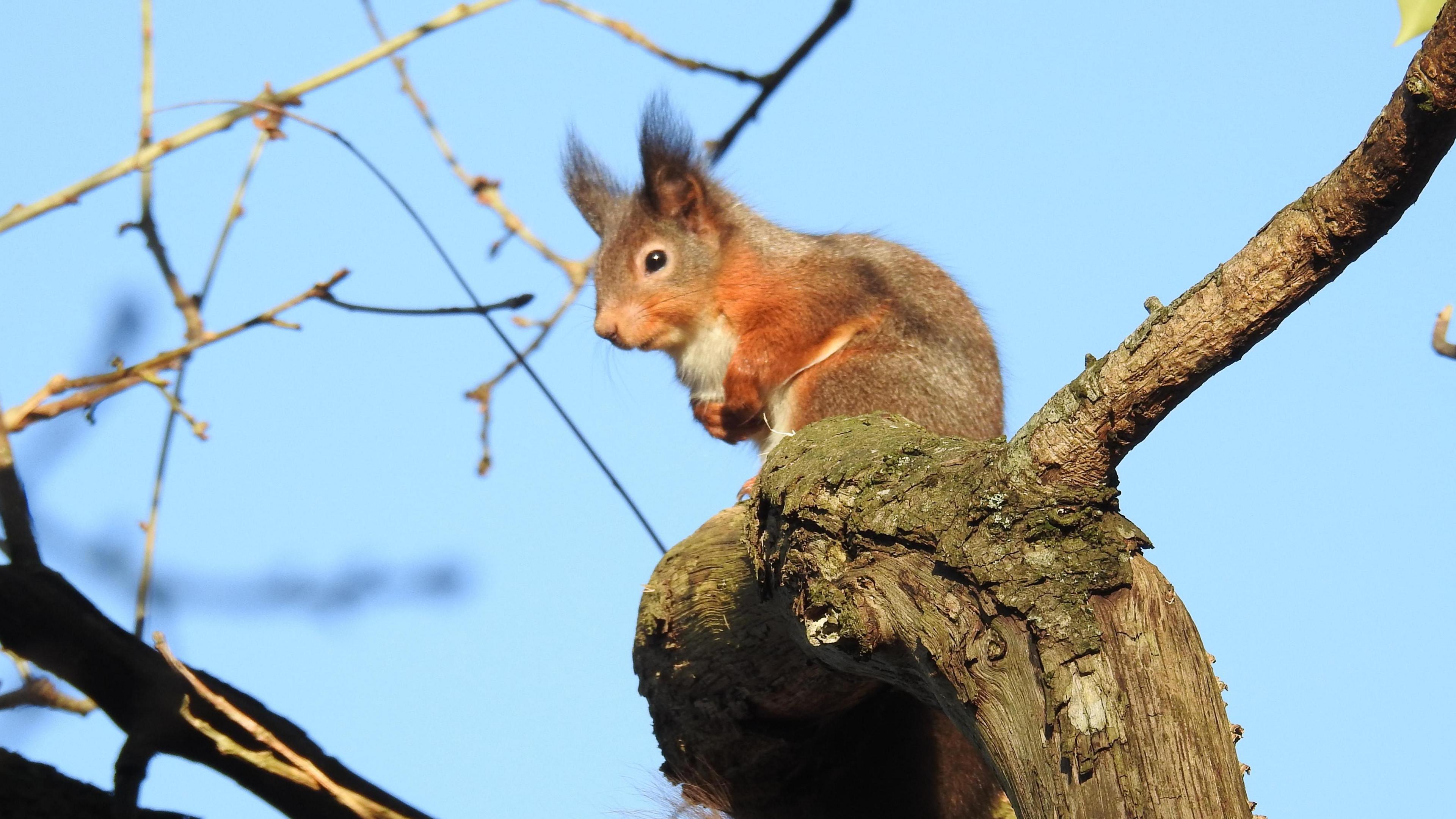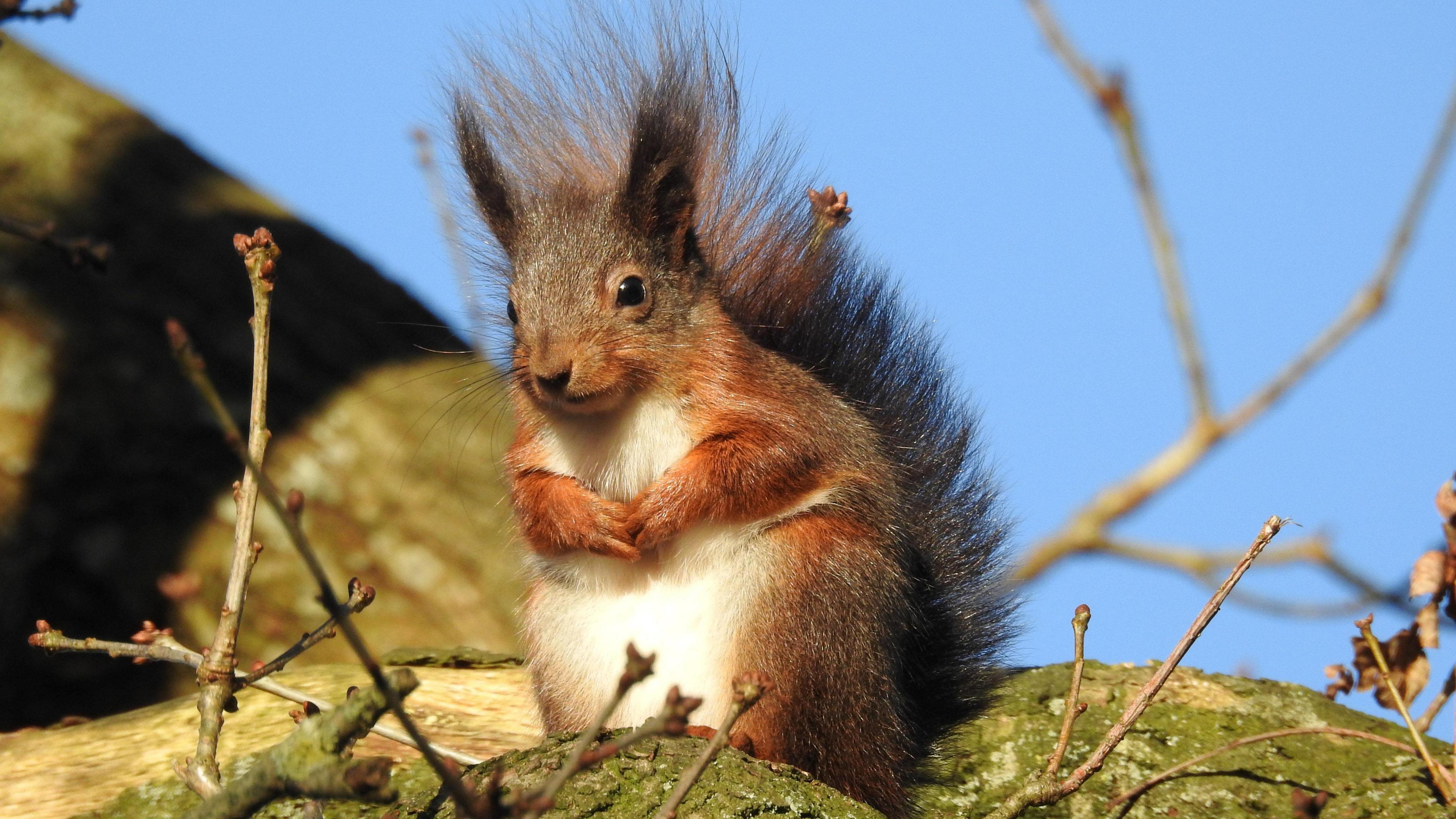Red squirrels 'resistant to climate change'

Red squirrels have largely been wiped out in southern England
- Published
Red squirrels appear to be resilient to climate change in Europe, a new study has found.
Scientists at Bournemouth University used climate models to help assess the ability of the species to survive when faced with different climate change predictions.
It revealed that temperature changes and lack of rainfall do not have a direct influence on the survivability of red squirrels.
Habitat, food availability and disease were found to have more of an impact on the species which, in the south of England, has been confined to islands such as the Isle of Wight and Brownsea Island in Dorset.
The native species have largely been wiped out in the UK following the introduction of grey squirrels from the US in the 19th Century.
Red squirrels' diet is mainly made up of tree seeds, supplemented with insects, fungi and birds' eggs.
They live in coniferous forests and deciduous wood across Europe from Spain, Italy, northern Greece, Scandinavia and into parts of western Russia.
Their broad distribution means they can live in a range of climates.
The Bournemouth University study investigated how well the population coped with temperature changes and low rainfall.
Alyson Buchanan, conservation biologist and ecological researcher said the modelling showed they had "natural ability to adapt to a range of climatic conditions" where food sources might be limited.
"We can see that red squirrel populations are not directly affected by current climate patterns in the models.
"Other factors such as habitat, food availability, disease and competing species appear to matter more and underline the need to maintain positive conservation efforts for this well-loved species."
Red squirrels have suffered in competition with the larger, heavier and hungrier grey squirrel who will usually win the fight for food.
The greys also carry the squirrelpox virus, which is fatal to the red species.
However, the population on the Isle of Wight has survived as the Solent acts as barrier, preventing grey squirrels coming into contact with them.
Get in touch
Do you have a story BBC Hampshire & Isle of Wight should cover?
You can follow BBC Hampshire & Isle of Wight on Facebook, external, X (Twitter), external, or Instagram, external.
See also
- Published12 October 2024
